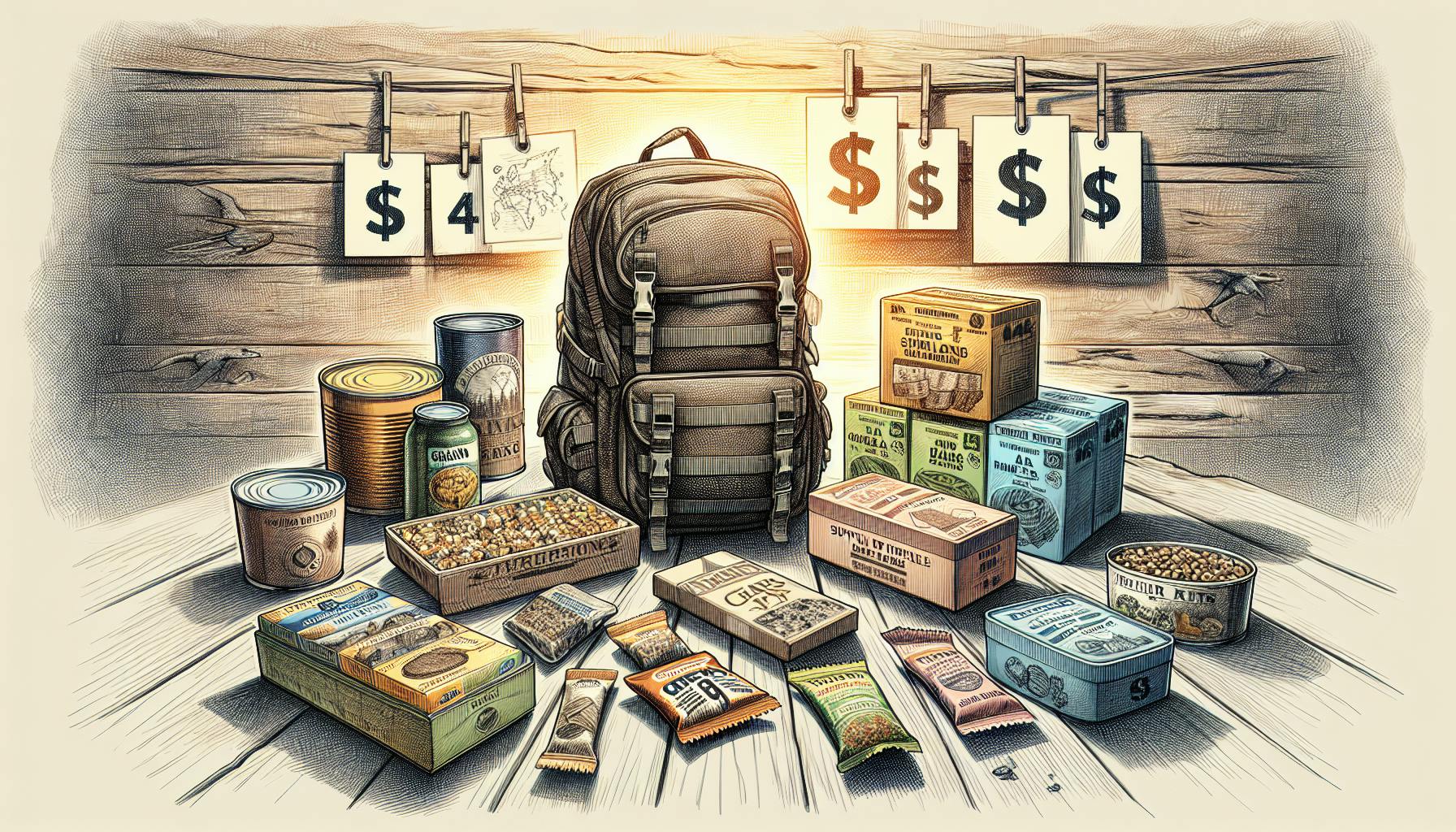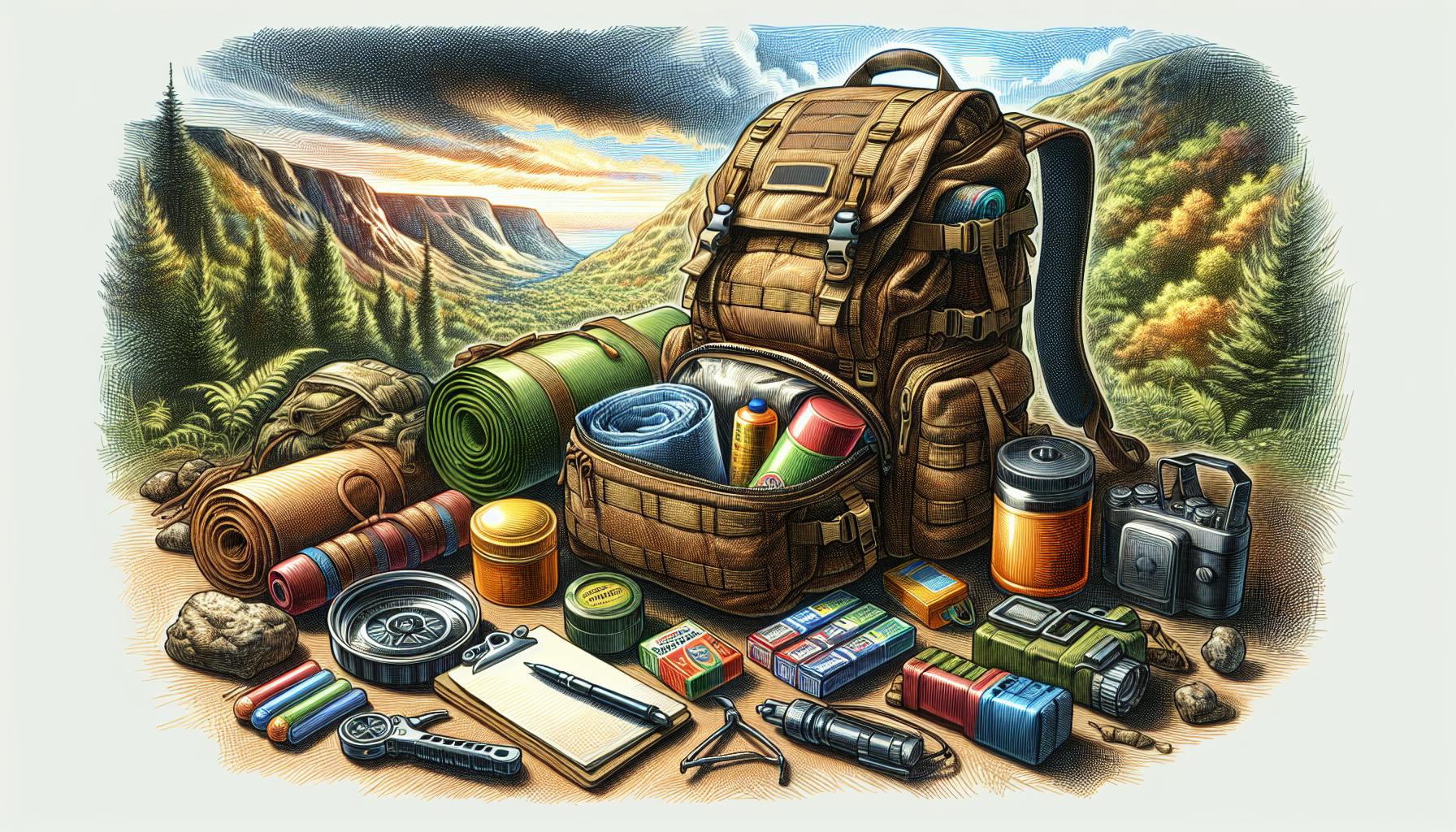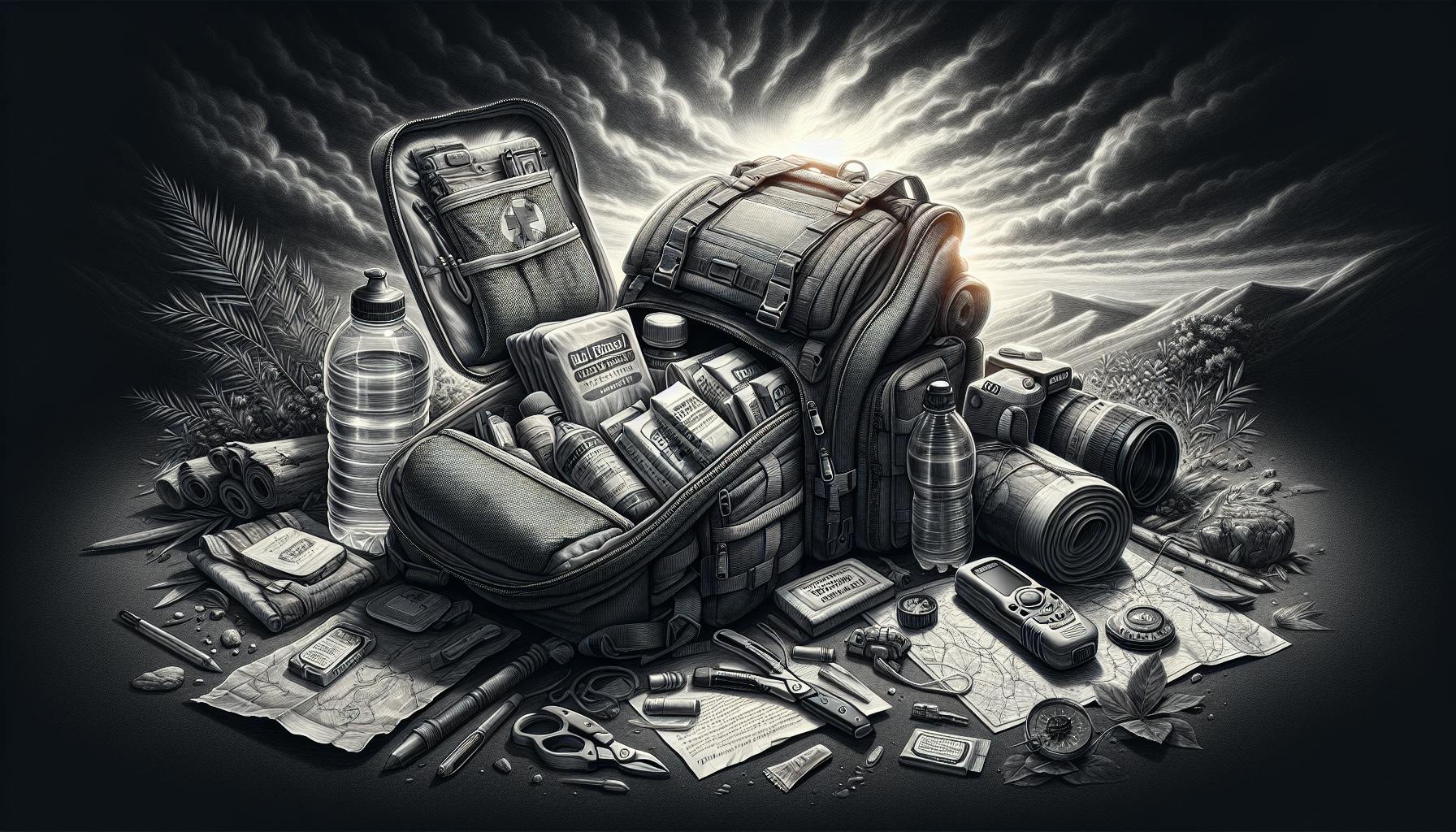When disaster strikes, having the right supplies and skills on hand can make the difference between life and death. As a prepper, you aim to be ready for anything by stockpiling critical gear and training for survival scenarios. But it's easy to become overwhelmed with the endless products and advice targeted at preppers today. You need a practical go-to list of versatile essentials to cut through the clutter and build a well-rounded preparedness foundation.
This curated prepper’s checklist will break down the must-have categories of gear and supplies every prepper should have on hand before SHTF. You'll get specific recommendations on items to stock up on now for water, food, medical, security, tools and more. Integrate these tried and true staples into your preps and you'll be leaps ahead of the unprepared when an emergency hits. Let's dive in to the top prepper essentials that can mean the difference between life and death.
Water - The #1 Prepper Priority
Having a sustainable supply of clean drinking water tops the list of critical prepper essentials for good reason. Plan for at least 1 gallon of water per person per day for basic drinking and sanitation needs. Consider investing in reliable water filtration systems like the tried-and-true Berkey or LifeStraw Family gravity filter that can turn contaminated sources into thousands of gallons of fresh water.
You'll also want to stock up on water storage containers like 55 gallon poly drums and portable water bladders to transport and hold supplies. Other key items include water purification tablets like Potable Aqua, reusable water bottles like HydroFlask growlers to carry filtered water, and collapsible jerry cans to hold found water. Know where to locate natural springs in your region and have the skills to collect rainwater and distill saltwater for backup sources.
Long-Term Food Storage and Prep
Grocery stores only hold about 3 days worth of food at any time. For longer disruptions, you'll need your own deep pantry supply. Stock up on nutritious staples with long shelf lives like rice, beans, canned fruits and vegetables. Consider adding freeze-dried meal pouches from brands like Mountain House that can last 25+ years when properly stored.
Focus your food preps on items you already eat rather than buying fancy "prepper meals" that may get wasted. Maintain your supply using a first-in, first-out (FIFO) rotation to cycle through stock. Make sure to have alternate cooking methods like portable camp stoves and fuel in case utilities are disrupted.
Robust Medical Supplies and Training
From minor cuts to serious trauma, medical issues don't stop in an emergency. Prep your supplies to handle a range of issues including trauma injuries. Stock bleeding control items like tourniquets, gauze, and QuickClot hemostatic agents. Keep a full first aid kit from Adventure Medical Kits stocked with the essentials. Have over-the-counter medications, prescription meds you take, antibiotics, and reference materials like the Survival Medicine Handbook.
Take first aid, CPR/AED classes to learn how to respond to medical issues. Consider pursuing wilderness medicine training through respected schools like the Wilderness Medicine Institute to gain advanced skills in wound care, improvised suturing, and more. Lifesaving skills paired with supplies make medical preparedness possible.
Security - Defense and Avoidance
When a disaster hits, you may need to protect yourself and your family from threats. Prep your security plan and supplies for flexibility in responding to situations. Have reliable firearms like Glocks, Smith & Wesson M&P, shotguns, and AR-style rifles. Stock plenty of ammunition and magazines. Get professional training and stay proficient. Reinforce doors and windows and have an emergency communication plan.
Also consider less-than-lethal options like pepper spray gels and tasers when appropriate. Situational awareness, threat avoidance, escape techniques, and de-escalation skills taught in self defense courses allow you respond without force. A balanced mix of skills, gear, and training will boost your security posture. Store firearms and ammo securely in quick access safes from trusted brands like Liberty.
Essential Tools and General Supplies
A prepper's supplies aren't complete without quality tools to build, fix, and survive. Have solid fixed blade knives from Morakniv or ESEE and multi-tools like Leatherman. Pack saws, axes like Fiskars X7, and hammers get the tough jobs done. Reliable lighters, Ferro rods, and waterproof matches can start fires anywhere.
Useful items like Gorilla tape, paracord, carabiners, tarps, and emergency blankets provide survival utility. A crank or solar powered radio keeps you informed. Cash or barter items will have value if the dollar collapses. Fill out your gear with camping and survival basics like MSR stoves, tents, and sleeping bags. Take an inventory and ensure you have both general tools and items specific to likely scenarios.
Storing Your Prepper Gear Securely
Now that you've compiled your critical prepper supply list, proper storage is key to keeping it protected and accessible. Consider ease of access if you need to bug out, while also maintaining discretion.
Storing caches on your own property allows quick access if done discreetly. Bury sealed containers or utilize secure outdoor sheds and garages if available. Inside your home, a prepper room or closet works for items you need close at hand. Offsite storage with trusted family and community members creates distribution and redundancy.
Storage facilities are cost-effective for bulk goods, but ensure they are climate controlled and discreetly packed. Vehicles can be rolling caches, just watch for temperature extremes. Maintain an everyday carry of essentials like first aid, water, and tools on your person at all times.
Rotate goods, test gear, and track dates to keep supplies in working order. Duplicating irreplaceable items like documents across locations means you stay prepared if one cache is compromised.
10 Must-Have Specific Items To Start Your Prepper Gear
Here are 10 specific items to get you started with versatile, trusted prepper gear:
1 - LifeStraw Family Gravity Water Filter
This robust gravity filter turns contaminated water into safe drinking water for the whole family. No power required, just fill and let gravity do the work. Removes bacteria, parasites, microplastics and improves taste. Each filter lasts up to 26,000 liters!
2 - Mountain House Freeze Dried Food Pouches
Highly nutritious meals stored in lightweight pouches with decades long shelf life. Just add hot water and in minutes you've got a tasty hot meal. Easy to pack, with flavors everyone will enjoy eating.
3 - Leatherman Wave Multi-Tool
This classic multitool packs endless functionality in one rugged stainless steel package. Tools for repairs, crafting, medical aid, food prep, and anything between. TSA approved for your everyday carry and trusted by preppers worldwide.
4 - Sawyer Mini Water Filter
This tiny filter screws onto standard bottles and packs to let you drink from virtually any water source. Removes 99.9% of bacteria and protozoa from up to 100,000 gallons of water. Every bug out bag needs one!
5 - Midland ER310 Crank Radio
Crank power or solar panel keeps this emergency radio broadcasting weather alerts and critical news so you stay informed. Built-in LED flashlight, SOS beacon and USB to charge devices. No batteries required!
6 - Ruger 10/22 Rifle
This classic .22 LR rifle is perfect for hunting, protection, and practice. Ammo is cheap and easy to stockpile. Accurate, reliable, and highly customizable. Great starter rifle to train everyone in the family on.
7 - QuikClot Advanced Clotting Sponge
stops moderate to severe bleeding fast. No training or special storage needed. Used by militaries worldwide. Could be a lifesaver during trauma scenarios.
8 - Morakniv Companion Fixed Blade Knife
Swedish carbon steel blade excels at camp tasks like making traps, prep, wood carving, and more. Sturdy sheath, ergonomic handle and affordable price make it a prepper favorite.
9 - LifeStraw Home Gravity Water Filter
No power or pumps required, just gravity! Removes bacteria, microplastics and parasites. Each filter handles 26,000 liters. Ideal for home, camp, or offgrid preparedness.
10 - Goal Zero Yeti 1400 Power Station
This solar generator packs 1425Wh of power to run small appliances, charge devices, and even run a CPAP or mini-fridge overnight. Fuel options include solar panels or wall power. Clean backup electricity!
Develop Key Prepper Skills As Well As Gear
Any prepper knows quality gear is critical. But just as vital are useful skills and knowledge to employ your tools. Here are some of the most valuable abilities to build before they’re needed:
Emergency Medical Skills – Take CPR, first aid and EMT training now to learn how to respond to injuries and save lives. Study field medicine guides to gain a deeper knowledge base. Consider getting wilderness medicine certified through respected schools like the Wilderness Medicine Institute to handle scenarios miles from hospitals.
Self Reliant Food Production – During long emergencies, you’ll need to know how to feed yourself without stores. Learn hunting, trapping, fishing, and foraging suited for your region. Start gardening now and can, smoke, pickle the surplus. Consider beekeeping for honey. Take courses on canning, fermenting, cheesemaking, and more.
Land Navigation – Can you navigate without GPS? Study map reading, compass use, terrain association and land navigation skills. Scout the wilderness areas near you regularly so they become familiar. Have paper maps on hand for when electronics fail. Stay found and reach your destination even off trail.
Fitness and Self Defense – Stay physically fit through running, rucking, strength training and functional exercises. Learn de-escalation techniques. Where lawful, get trained on situational awareness, threat avoidance, firearms, pepper spray and martial arts for self defense. Remaining vigilant keeps you prepared.
Primitive Living Skills – Could you start a fire, build a shelter or make tools from scratch? Primitive skills may be vital if you lose gear. Take courses on making cordage, finding natural water sources, making traps, tanning hides, and edible/medicinal plants indigenous to your region.
The Time To Get Prepared Is Now
Add versatile essentials from this list to your preps based on your situation, locale, and budget. Strive for depth in all categories rather than focusing on just one or two. Integrate new gear into your lifestyle and training regularly. Read articles, take courses, and network with like-minded folks to keep advancing your preparedness. Start today and you'll be ready to weather any storm. Stay vigilant and ready fellow prepper!


